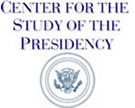China is not indifferent to what is now characterized as the worst attack since the 1953 armistice ended the Korean War. Yet China is and has been going down a path different from what the West is prepared for, and the message from Beijing is that it will stay with carrots rather than sticks.
The best the West can hope for is that the Chinese will coax Pyongyang into behaving in a responsible manner. That may be unsatisfactory for the West, but it is altogether consistent with Beijing’s long-term interests.
While the visit by North Korean leader Kim Jong-il to China in early May was driven by an immediate need for aid and investment, Kim spent much time taking lessons from the Chinese by touring the coastal cities of Dalian and Tianjin, which the hosts promoted as models of economic growth and development. The message was that what worked for China might work for North Korea.
Participating in the entourage was Jang Song-thaek, Kim’s brother-in-law and chief of foreign investment, and Kim Yang-gon, the head of Korea Taepung International Investment Group, which is an agency created this year to channel $10 billion from China to build ports, roads, railways and tourist infrastructure. This huge investment amounts to almost 70 percent of North Korea’s domestic gross product.
Later this year, it is anticipated that foreign investment (primarily from China) will be allowed in eight major cities of North Korea, and not just in state-sponsored foreign economic zones.
China hopes to use its economic power to encourage Pyongyang to return to the stalled six-party nuclear talks and to temper its actions. Beyond that, Beijing is not likely to publicly chastise the Kim regime. The end result is that the Kim family’s power base is strengthened.
China’s priority in its relations with North Korea is stability, since the collapse of the North could result in a flood of refugees into China. China is also wary that an abrupt change of regime would improve chances for unification with the South and thus enhance U.S. military power in the region. So when Kim Jong-il dies, China will likely support his chosen heirs.
China’s hope is that increased economic exchange will help moderate Pyongyang, stabilize the economy and improve the lives of some people who have lived for years well below the poverty levels. Ironically, however, many North Koreans are learning about the stagnation of their country and the relative prosperity outside their borders — and thus turning restless — through DVDs and radios smuggled in by Chinese merchants.
China is also attracted by the strategic and commercial opportunities in North Korea, namely raw materials, an even cheaper work force than its own, and access to one of Asia’s northern-most ice-free ports on the Sea of Japan.
But China should tread cautiously if it wants to avoid triggering a major regional power rivalry in Northeast Asia. Pyongyang should also understand that direct investment from a diversity of foreign sources is in its best interest, and that there is a real risk of excessive dependency if Beijing is allowed to become the near-exclusive source of investment and aid.
A multilateral regional partnership, such as the United Nations Development Program’s Greater Tumen Initiative (full disclosure: I am chairman of the business advisory council of the G.T.I.) may be the best vehicle for building stable and sustainable economic relationships with all the players in Northeast Asia. China, as the host country for the G.T.I., as well as the other members — Russia, Mongolia and South Korea — should encourage North Korea to rejoin the Initiative, from which it resigned in 2009 in response to U.N. sanctions.
China has the opportunity to play a leadership role in the development of North Korea, but it must do so in a manner that ensures open cooperation with all regional players and institutions.






